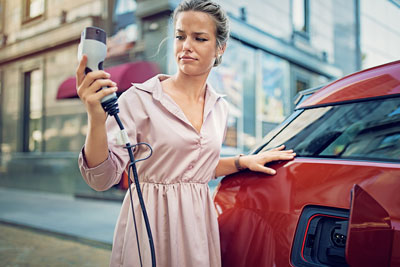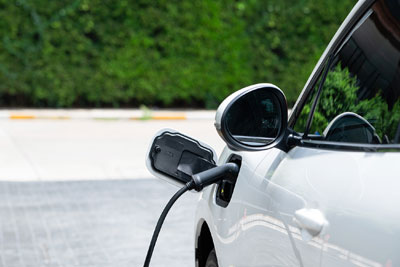EV charging stations: 6 common problems solved

Is your EV charging station not working? Is the charging cable stuck or the charging time unusually slow? Discover quick and effective solutions to the most frequent issues with electric vehicle charging—whether at home or at a public charging station.
1. Your electric vehicle won’t start
2. Charging doesn’t start or your vehicle won’t charge
Make sure the charging cable is securely plugged into your charging station and that the connectors are clean. If it still won’t work, check your EV’s timer settings—you may have scheduled the charged power for off-peak or nighttime hours.
Solutions: If the timer isn’t the issue, unplug and replug the cable. Still no luck? If it’s your residential EV charger, power it off, then restart it and try plugging in again.
3. Flashing yellow or red warning lights
Flashing lights often indicate a weak or unstable power output or signal short circuits in the system.
Solutions: Inspect the cable for cracks or wear in the insulation. Check the charging port connector—replace it if the terminals are blackened or worn.
Is your home charging station connected to a mobile app? Check for app notifications and make sure the firmware is up to date.
Good to know:
In winter, ice or snow may block the charging gun. Clean and dry it thoroughly.
Try the following at home:
Turn the circuit breaker off and back on at your electrical panel.
Make sure the EV charger is properly connected.
Use a non-contact voltage tester to check your outlet.
Before assuming the issue is with your charger, test your vehicle at a public EV charging station to rule out a communication error.
If the problem continues, contact CAA-Quebec Mobility Advisory Services, your charger manufacturer, or a licensed electrician. Never attempt to open the charger yourself.
4. Charging is slow
5. The charging gun is stuck in your electric vehicle
This is a common issue and usually simple to fix. Most EVs automatically lock the charging plug when the doors are locked. In winter, ice, cold, or condensation may also jam the mechanism.
Solutions: Unlock all doors by pressing your key fob button twice. If the charging connector is frozen, use a hairdryer to thaw it—avoid hot water.
Good to know: Still stuck? Check your owner’s manual for instructions on manual release or call CAA-Quebec Roadside Assistance.
6. The circuit breaker trips
This often happens when charging your EV with a 120V outlet, or if your home electrical circuit is overloaded. CAA-Quebec recommends using such outlets only for occasional charging and never with an extension cord.
Solutions: Refer to your owner’s manual to reduce the charging current. Avoid using extension cords with your charging station.
How to charge your EV during a power outage
If a power outage shuts down your home EV charger, head to the nearest public EV charging station.
It’s always smart to have a backup power source at home. An inverter generator can recharge your vehicle in emergencies—just make sure it provides at least 7200 watts. But be prepared: it will be noisy and slow, so bring some earplugs!
How to prevent EV charging issues
Here are some simple habits to protect your EV charger:
Handle the charging connector with care—don’t drop it and shield it from the elements.
Protect your charging cable—don’t slam it in the garage door or drive over it, and store it safely when not in use.
Read your owner’s manual regularly—most troubleshooting tips are right there.
Good to know: Damage from mishandling your charging equipment usually isn’t covered by the manufacturer’s EV charger warranty. Replacing the cable and charging connector can cost $300 or more, but your home insurance may cover it. Ask your insurance provider about your coverage and deductible.
Planning to install a home EV charging station?
The CAA-Quebec Online Boutique offers a selection of charging stations designed for the climate of Quebec and North America. Members earn CAA Dollars on every purchase.
Not sure what type of EV charger to choose? Our Residential Advisory Services can help you select the right model and recommend a certified electrician for the installation.
Thanks to the team at the Association des véhicules électriques du Québec (AVEQ) for their help in creating this article.

